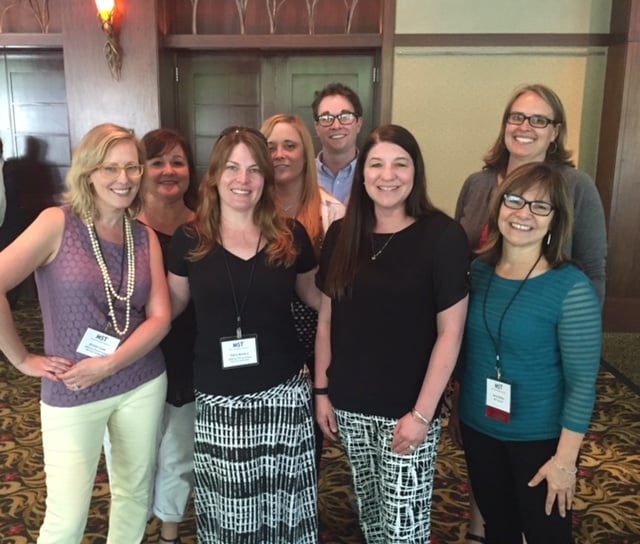This year's Network Partner Conference convenes in New Orleans
During the week of Oct.19, more than 100 MST experts, coaches, program managers and leaders converged on New Orleans for the 14th annual MST Network Partners Conference. The Network Partners Conference was created back in the early days of MST when partner organizations started doing their own consultation and new team development. As more of the MST work is being accomplished in different places, the conference is a way for those involved in MST to come together to share knowledge, experiences and hone their skills in implementing the model. It is an opportunity for us to just gather with old friends and colleagues, share stories, laugh together and bend an elbow or two.
 Pictured above is the Jefferson Parish Human Services Authority Network Partnership
Pictured above is the Jefferson Parish Human Services Authority Network Partnership
This year’s gathering was notable for being the first time the event was held outside of the state of South Carolina and only the second time that it was not held in the Charleston area. For that, we owe a special thanks to Christine Bonura, MST Network Partner Director of the Jefferson Parish Human Services Authority (JPHSA). The JPHSA Network Partnership has been implementing MST since 1995. Louisiana has seen amazing growth in MST going from four teams in 2004 to 36 active teams today. Decimated after Katrina in 2005, JPHSA has demonstrated remarkable resilience and strength.
As in meetings past, the conference opened with a summary of the year and presentations from various members of the MST community. This year featured Steven Phillippi, a public-policy expert in Louisiana, Christine Bonura, Cathy James from MST UK, and of course, Scott Henggeler.
Looking for ways to grow evidence-based programs
If I were, to sum up, the main theme from the presenters this year, it would be sustainability. Each presenter and most workshops looked in different ways at the question of how to sustain and grow the implementation of evidence-based models. This has been an emerging theme over the years as evidence-based programs in general and MST, in particular, have entered into more and more communities. We have seen the program thrive in numerous areas for more than 10 years. This also demonstrates how evidenced-based treatments, once looked upon as particularly boutique alternatives to more common programs, have emerged in many communities as the treatment of choice for adolescents involved in problem behaviors.
The rest of the two-and-a-half days of programming consisted of workshops and roundtable discussions for experts and program managers. Experts and program managers get a few opportunities during the regular workweek to interact face to face as we work from home or in small offices. As such, the discussions are great opportunities to network, share new training ideas, exchange knowledge, ask questions, debate topics and get that boost of energy that comes just from being around a lot of people dedicated to the same mission as you.
Each year, I have the good fortune to be amazed and humbled not by the actual work being done by my colleagues, but the way in which that work is conducted. The word I heard in nearly every conversation and workshop was “relationships.” We are a science-driven model and have a sharp focus on quality control, but there was and has always been a clear understanding that everything begins with the relationships that we develop with those around us. This is not something that is taught, but something understood. And because each and every one of us genuinely care about the families we work with and helping them get better, we understand the value of treating each other with dignity and respect. To me, this creates a kind of congruence, that what we do matches our beliefs. For most of the year, this awareness sits by quietly while the day-to-day demands take hold, but each fall, we get to spend a few days being reminded just how fortunate we are.
Check out pictures from the event on Facebook.


